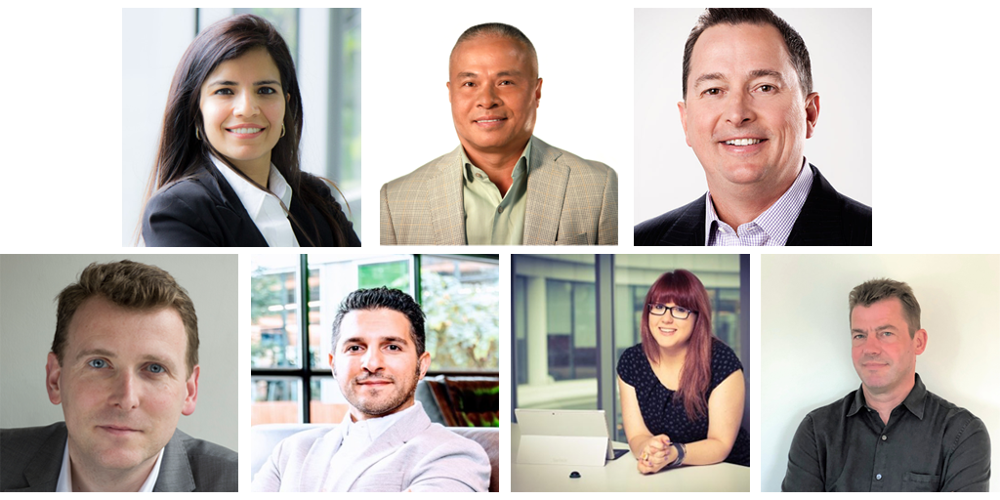
How many environmental consultants have been monitoring sites from a back bedroom during the current pandemic? What about calculating a client’s carbon footprint or checking progress with the restoration of a remote coral reef? Whatever the task, a key question in this time of COVID is can it be done remotely and, just as important, how can technology start to make new contributions to the way we live and work?
"You have to look at everything you’re doing and ask whether it can be automated," said Ben Coombes, PwC’s assistant director of sustainability and climate change, and guest presenter in Delivering the Digital Revolution - one of the most popular of this year’s Environment Analyst expert panel-led webinars (with approximately 400 registrants from across the world). While the online event made its own case for the value of remote working, it was important, according to Coombes, to identify those areas where optimization really could make a difference.
[The panel recording is free to view on demand from our webinars library.]
The value of AI
Water, transport, agriculture and energy, he said, were all sectors identified in a recent PwC report on the value of Artificial Intelligence (AI) adoption to enable a sustainable future. "We found that just by using AI in those four areas you could boost global GDP by 4%," said Coombes. "You could also reduce greenhouse gas emissions by 4% - the equivalent of current levels in Japan, Canada and Australia combined."
Delivering the Digital Revolution provided a lively and informative contribution to the debate as a series of expert speakers delivered their own take on the environmental sector's digital future, much of it supported by research and project experience. "AI is going to transform every industry," predicted Javier Baldor, then executive VP (now CEO) of BST Global, a leading supplier of business management software and cloud-based solutions to professional services firms, and sponsor of the event. "We interviewed global consultancies across five continents to get a better understanding of how technology could address issues like revenue leakage and staff utilization. For example, for every 1% increase in utilization, it’s well documented that you get a 0.5% increase in your bottom line."
Meanwhile, PwC’s ‘Sizing the prize’ global AI study notes that, "AI could contribute up to $15.7 trillion to the global economy in 2030, more than the current output of China and India combined. Of this $6.6tr is likely to come from increased productivity and $9.1tr...from consumption side effects." It seems that ‘do more with less and consume more because it’s affordable and available’ is the positive message for a world which must seek out new ways of sharing and protecting precious resources. However, while AI can open up more affordable consumption to more people, including in developing countries, an alternate view is that it will concentrate more money and power in the hands of fewer organizations (namely the big techs of this world).

50bn connected devices by 2025
The online, back bedroom world post-pandemic gave discussions at the Environment Analyst event a particular poignancy. All agreed that the world’s current predicament was both expediting the advance of digital technology and its application. "Corona has accelerated the need for companies to adopt new technologies," said Deepali Trehan, the California-based general manager & senior director of Intel Corporation. "It pushes that spectrum forward and that’s the opportunity we have at the moment."
She reminded participants that around 38bn connected devices currently in use would grow to more than 50bn by 2025. "We are living in an age of disruption," said Trehan "and when confronted with new technologies businesses face a choice. You can stay in your silo and be disrupted or you can take advantage of the situation and disrupt yourself."
Global approach
While digital technology can help firms open up new markets and become more competitive, it could also help to create a fairer, more distributed, more protected global economy, suggested Ben Coombes. "We need a global approach, including for the environment. AI, for example, can optimize energy use and distribution and give us a more decentralized energy system. Smart agriculture can support more efficient irrigation and harvesting while AI will also bring about big improvements in areas like weather forecasting and climate modelling."
Coombes referenced another recent report, Unlocking technology for the global goals, produced by PwC in collaboration with the World Economic Forum (WEF) at the start of this year. The report introduces the idea of fourth industrial revolution innovations such as AI, Blockchain and the Internet of Things, which could be used to support the implementation of the UN’s 17 Sustainable Development Goals. The report notes: "For many of the challenges faced, from climate change to nature loss, there is no longer the luxury of time."
An example of this predicament came from another panelist Ramtin Davanlou, AI & analytics senior manager with Accenture, who highlighted the pioneering use of AI for monitoring recovering fish stocks at a vulnerable coral reef surrounding Pangatalan Island in the Philippines (EA 12-May-20). Working in partnership with Intel and the Sulubaaï Environmental Foundation, he explains: "We installed an AI-powered underwater camera which was able to detect different species of fish, count numbers and send information onshore for analysis."
The headline stat from Davanlou is that 38% of the world’s coral reefs have been lost as a result of overfishing, pollution and climate change. By using AI in this way it has become possible to analyse the success of restoration projects like the one at Pangatalan Island where fish-friendly concrete structures were installed on the ocean bed to replace the reef that had been lost.
While tech companies are clearly winners in the digital revolution, they too have to present themselves as responsible citizens. Microsoft, for example, plans to become water positive and be net zero on waste by 2030, Eve Joseph, the company’s sustainability and customer engagement lead, told webinar attendees. "We will also be carbon negative by 2030 and intend to reduce our emissions as quickly as possible by using more renewable energy and switching to an electric vehicle fleet."
While the IT giant believes it is helping its customers reduce their own emissions through developments such the now ubiquitous meeting and call software, Microsoft Teams, it will continue to lead by example, said Joseph, citing the company’s commitment to a $1m climate innovation fund and its support for initiatives such as the Amazon-led $10bn Climate Earth Fund (CEF) to fight climate change. The company also now levies a carbon tax internally, she revealed, charging businesses for their emissions and using the funds to purchase renewable energy and support initiatives such as CEF. Microsoft is also working as a partner alongside a number of consultancies, not least PwC (with which it collaborated for the AI sustainable future report) and also Wood (EA 21-Oct-20).
Immense opportunity...and an equalizer
The expert panel all agreed that as costs fall, smaller companies and individual consultants can access more sophisticated digital technology - which in turn is starting to become more widely available in developing countries. "This used to be the arena of big firms with big budgets, but that has changed," added BST Global’s Baldor. "This is a huge opportunity in delivering data in meaningful ways and you don’t have to be a multinational company to come up with innovative ideas leveraging these kinds of technologies."
They also agreed partnerships were key to making big data work and adding value to existing ways of working and to life in general. Mat Osund-Ireland, an environmental scientist with consultancy Wood, said that his firm’s ENVision data management software - which incorporates Microsoft’s cloud platform Azure - was installed at more than 200 client sites in the US. "Partnerships are about sharing data," he said "and if you don’t share data you won’t get any value."
BST Global director of knowledge management Hank Tran concurred, adding that users had to understand and trust the data they were getting. "Once you understand what is happening you can move forward with optimization."
Finally, there is the issue of data and inequality. How can the digital revolution help lift more people out of poverty, enfranchise and empower those who are outside this tech hub? True to the Bill Gates spirit Eve Joseph cited Microsoft’s AI for good initiative. "We want to make AI affordable," she said "and put it in the hands of NGOs, charities and policy makers." As the pandemic subsides, the not-for-profits and their needy targets will require all the digital support they can get.
---
View Environment Analyst's Delivering the digital revolution webinar for free on demand here - with special thanks to sponsor BST Global
